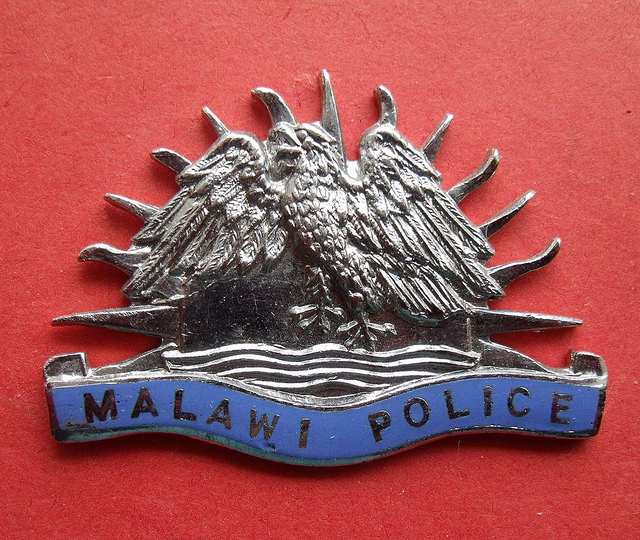Banda was considered by much of the West to be a new kind of African leader, but Malawians knew otherwise and made their feelings clear at the polls.
As midnight approached on 30 May, the eighth day following the closure of polls in Malawi’s 20-22 May elections, it was unclear whether the country was about to be tipped into yet another − and this time possibly irrevocable − political crisis.
Under electoral law, the electoral commission had eight days to count votes and its deadline was fast-approaching. However, it had more to worry about than just checking ballots.
On 24 May, it emerged that Peter Mutharika was leading with 42%, with 30% of votes counted. This compared closely to a pre-election Afrobarometer poll, so it was largely assumed that Mutharika would emerge victorious. But President Joyce Banda had other ideas.
She declared that there had been mass rigging, that the electronic vote-counting system had been hacked (it had, in fact, crashed rendering it inoperable a day after polls opened), and said she was annulling the vote. She announced that new elections would be held, but that this time she would not stand.
Her decision not to run was seen by some as a selfless act that chimed with the idea, held by many in the West, that she represents a new kind of African leader. But the fact that her proposal was completely unconstitutional seemed to point to another possible interpretation.
Nevertheless, other trailing candidates soon joined the bandwagon and issued their own demands for a full recount and launched court injunctions seeking to prevent the Malawi Electoral Commission (MEC) from releasing any more results. At the same time, Mutharika’s Democratic Progressive Party (DPP) launched its own court injunction trying to get the MEC to do the absolute opposite − i.e. release the results within the eight-day period.
The MEC itself announced that it wanted to perform a recount based on numerous voting irregularities and sought a court order to extend the constitutionally-mandated eight-day counting period to 30 days. To add even more heat to matters, a coalition march of pro-recount parties in the lakeshore town of Mangochi on the morning of 30 May clashed with police, leaving one protester dead.
As night-time fell on 30 May, there was consequently a lot riding on what High Court Judge Kenyatta Nyirenda would decide. At 10:30 pm his announcement finally came. He initially announced that the MEC was entitled to perform a recount, seemingly giving hope to those who opposed a Mutharika victory. However, that hope was swiftly crushed as Nyirenda said that any such recount would have to be performed within the commission’s eight-day counting period. In other words, if the MEC wanted to manually recount around 7 million votes, it had an hour and a half to do so.
And so it was that just before midnight, at the last possible moment, Peter Mutharika was announced the winner of Malawi’s elections. He was sworn in the following day.
Same old story
For those who get most of their news about Malawi from Western media organisations, the election results may have been quite surprising (aside from all the unexpected drama).
After all, Joyce Banda had been warmly welcomed by much of the international community when she ascended to the presidency in 2012 and was admired by many around the world.
At the same time, there seemed to be many reasons to suggest Malawians would not want to vote for her main opponent, Peter Mutharika. For one, Mutharika has spent most of his professional life outside Malawi. He is also the younger brother of Banda’s predecessor, the late President Bingu wa Mutharika, who became increasingly authoritarian through his rule. Finally, at the time of elections, Peter was also on trial for a range of charges including treason. This latter charge referred to his actions when he tried to block then Vice-President Banda’s inauguration after Bingu died unexpectedly in April 2012.
So how did Banda go from being the apparently beloved Madam President to not just losing the election, but coming third?
On the one hand, the answer comes down to the fact that Banda’s reputation in Malawi is quite different to her image in the West. Far from being the breath of fresh air many international figures assumed her to be, Banda consistently acted just like any other Malawian politician in her position. For example, she made grand gestures at the beginning of her presidency about how she would do things different, but was at the same time distributing sacks of maize stamped with her initials from state-owned vehicles.
Added to this, there was also the infamous Cashgate scandal in which around $100 million of donor aid was looted from government coffers. Banda came under much criticism for her handling of the scandal, there were allegations of her possible involvement, and calls for her resignation grew.
There is also an important international dimension to Banda’s domestic unpopularity. Bingu wa Mutharika had become more and more repressive whilst in office, but what tipped the scales against him internationally was his refusal to devalue the kwacha, the local currency. One of Joyce Banda’s first decisions as president was to do just this. She devalued the currency by 34%, causing the prices of many goods to soar by as much as 50%.
Losing Banda
Two years after taking office, Banda lost much of what popularity she had. She was seen to have acquiesced to international demands and made life more difficult for poor Malawians in the process. She was seen to be as happy to buy votes as any other Malawian politician. And the Cashgate scandal pointed to the possibility that she was happy to use her position of power enrich to herself, or at least that she was too incompetent to stop others in her cabinet and party from doing so.
In fact, the unresolved issue of Cashgate may have been the main motivating factor behind her fairly peculiar call for the elections to be repeated and her accompanying vow not to run in them.
While Banda clearly would have wanted to win the elections, it seems she was even more keen to ensure Mutharika did not. After all, it was her government that arrested him and put him on trial, and with the Cashgate investigation still ongoing, Banda perhaps fears that Mutharika will return the favour. It remains to be seen if she will be reassured by his offer of an olive branch since being sworn in.
Malawi’s 2014 elections have been messy, with none of the major protagonists emerging with much credit. Whilst Malawi’s democratic institutions did finally come through, they took a long time to do so, and it still seems that there were some serious irregularities in the polls.
The new president is a politician with a track record of underhand dealings, and his new government will rule a divided country. The Joyce Banda hailed by the international community in 2012 was defeated, though in reality the figure she was imagined to be by many Westerners never existed. The people of Malawi knew this all along, and made it abundantly clear at the polls.



